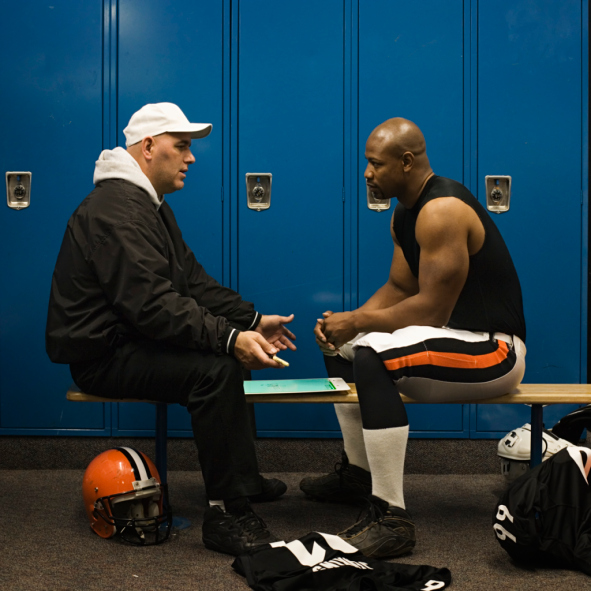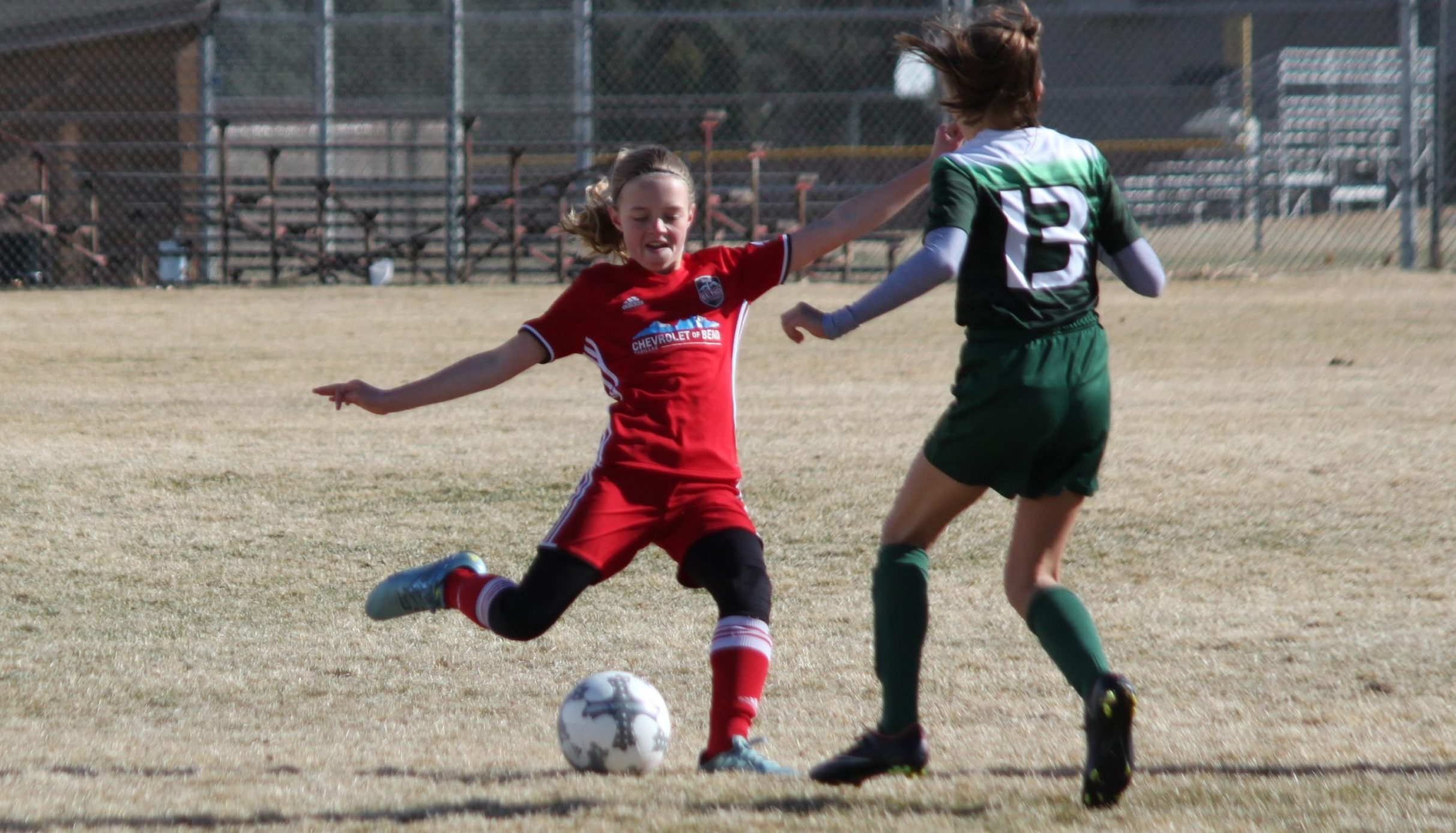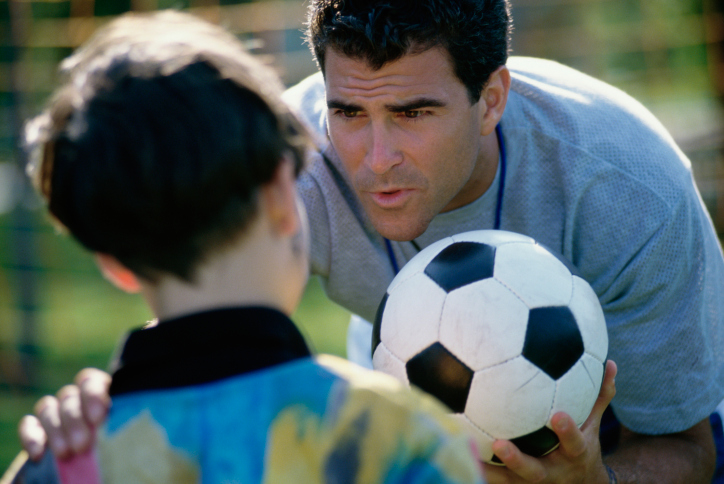My article on sport specialization, “Is it Wise to Specialize,” prompted quite a bit of discussion, commentary, and controversy, with people chiming in from all across the globe. Certainly the dynamics of single v multiple sport participation, and its effect upon performance, injury, and burnout, is not a settled issue, and arouses many emotions.
It also consistently brought up a related topic:
“What do I do if my child only wants to play one sport? Do I force him to do others? Please help!”
Many parents feel tremendous pressure from youth coaches, other parents, and finances, to pick a sport and stick with it. Without rehashing everything from the previous article, here are some of the major points I made regarding the negatives of single sport participation for young athletes:
- Adult Inactivity: A study by Ohio State University found that children who specialized early in a single sport led to higher rates of adult physical inactivity. Those who commit to one sport at a young age are often the first to quit, and suffer a lifetime of consequences.
- Overuse Injury: In a study of 1200 youth athletes, Dr Neeru Jayanthi of Loyola University found that early specialization in a single sport is one of the strongest predictors of injury. Athletes in the study who specialized were 70% to 93% more likely to be injured than children who played multiple sports!
- Burnout: Children who specialize early are at a far greater risk for burnout due to stress, decreased motivation and lack of enjoyment
Here are the major benefits to be gained by multi-sport participation:
- Better Overall Skills and Ability: Research shows that early participation in multiple sports leads to better overall motor and athletic development, longer playing careers, increased ability to transfer sports skills other sports and increased motivation, ownership of the sports experience, and confidence.
- Smarter, More Creative Players: Multi-sport participation at the youngest ages yields better decision making and pattern recognition, as well as increased creativity. These are all qualities that coaches of high level teams look for.
- Most College Athletes Come From a Multi-Sport Background: A 2013 American Medical Society for Sports Medicine survey found that 88% of college athletes surveyed participated in more than one sport as a child
- 10,000 Hours is not a Rule: Most elite competitors require far less than 10,000 hours of deliberate practice. Specifically, studies have shown that basketball (4000), field hockey (4000) and wrestling (6000) all require far less than 10,000 hours.
- Free Play Equals More Play: Early specialization ignores the importance of deliberate play/free play. Researches describe deliberate play as activities which are intrinsically motivating, maximize fun and provide enjoyment are incredibly important. Deliberate play increases motor skills, emotional ability, and creativity. Children allowed deliberate play also tend spend more time engaged in a sport than athletes in structured training with a coach.
- There are Many Paths to Mastery: A 2003 study on professional ice hockey players found that while most pros had spent 10,000 hours or more involved in sports prior to age 20, only 3000 of those hours were involved in hockey specific deliberate practice (and only 450 of those hours were prior to age 12).
So, what is a parent to do when confronted with statistics like these and a child that only wants to play a single sport?
First, the age of the child is critically important. Medical practitioners and child psychologists recommend that a child should participate in organized athletic training and competition in an amount of hours equal to or less than the child’s age. A 10 year old should not have more than 10 hours of structured sports in any week (whether it is one sport or multiple sports).
If your child is young, say under the age of 13, most experts believe it is crucial to participate in more than one sport. When I get parents of 8 year olds who tell me “My son only likes soccer,” I say “how do you know, what else has he done?” Maybe he has never tried basketball, or he tried and had a bad coach or bad teammates. Do not be afraid to try again, because playing basketball can help him become a better soccer player through increased agility, balance, coordination and pattern awareness.
The more sports a child is introduced to, the better chance he has of finding the one he is passionate about, taking ownership of it, and becoming a high-performer in it. There is nothing wrong with a parent of a young athlete asking their child to try something, and if it does not work out, then so be it. The problem with early specialization is that many kids who have only played a single sport, at age 13 or so, say “I want to try something else.”
If your child wants to play at the next level (and you want them to), would it not be better to have a multi sport athlete decide to specialize in high school, instead of a specialist who decides to diversify in high school? That is why athletes should diversify early. Explain to them how it helps them in their sport of choice. You will develop a better all around athlete, and potentially help a child appreciate his first sport, his coach and his team even more.
A young child certainly does not need to participate in elite level competition in multiple sports. Far too many well intentioned parents, in trying to ensure their child is not a single sport specialist, turn him into a multi-sport specialist, with swimming at 6am, soccer at 4pm and basketball at 7pm. I think one organized sport per season, especially for kids 10 and under (an age I selected, not researched based) is entirely appropriate.
By late middle school and high school (again, my opinion), I think many athletes are mature enough, educated enough, and capable of having high aspirations and ambitions in a singular sport, and thus may choose to participate in only one organized sport. They may have jobs, significant others, musical or artistic pursuits, or a social life that only allows time for one high level sport. I think it is important that coaches, athletic directors, and parents ask these kids what their goals and ambitions are, instead of trying to determine them for them.
This does not mean theses athletes should not be encouraged to pursue other athletic interests in a casual, fun way. I coached many high level youth soccer players who only did only that one school/club sport, but loved to ski, bike, golf, and play ultimate Frisbee. This free play was a way to refresh their body and mind from high level competition.
Athletes at this age also need a lot of rest, proper nutrition, academic balance, and general fitness. High school level sports are hard and a timely commitment, and are not for every athlete. We can respect their decision to only play one sport while helping them periodize their specialty sport training.
Another point that many comments on my last article raised is “Can’t good coaching overcome many of the issues single sport specialization causes?”
People point to the Lionel Messi’s and Cristiano Ronaldo’s of the soccer world as examples of people who only played soccer from a young age. This may be true, but they ignore three crucial points:
- Many of Ronaldo and Messi’s early hours in the game consisted of free, deliberate play. In free play, kids play multiple positions, and focus solely upon the enjoyment and fun of the sport. They are allowed to be creative, play fearlessly, and rely solely upon themselves for the motivation to pursue the sport. This is exactly the opposite of structured, organized training with a long term goal in mind, and has been scientifically shown to yield better overall athleticism.
- Messi, Ronaldo and other high level soccer players were brought into the youth setup of very high level soccer organizations at a young age. These clubs, such as La Masia at FC Barcelona, have dozens of full time staff attending to the needs of only 300 athletes. They have coaches, physicians, physiologists, nutritionists, chefs, psychologists, academic tutors, and more. Every need is attended to, from proper training to medical attention to school to nutrition to rest. We have nothing similar in the United States, so to argue that we just need better educated coaches and then kids can specialize, because they do overseas, is comparing apples to oranges.
- There are a huge number of professional athletes that were multiple sport participants growing up. I recently read Ethan Skolnick and Dr. Andrea Corn’s Raising Your Game: Over 100 Accomplished Athletes Help You Guide Your Girls and Boys Through Sports
, which interviews over current and former professional athletes, from Lebron James to Steve Nash to Brett Hull. The common link: they all played multiple sports. I high recommend this book if you are on the fence on this subject, as it will give you a lot of reassurance that multi-sport participation and elite performance are not mutually exclusive.
Finally, I do believe there is one activity that every athlete should incorporate into their training: yoga! From Kareem Abdul Jabbar of NBA fame to Ryan Giggs of Manchester United, many elite performing athletes who compete for years at the highest levels have a dedicated yoga practice. I can think of no better activity to introduce to young athletes than one that improves balance and coordination, builds core strength and flexibility, and instills a level of focus and discipline than a good yoga practice. From football to soccer, basketball to baseball, I have never met a young athlete who would not benefit from weekly yoga. My personal choice, and the one I introduced my teams to, was a form of hot yoga called Bikram, but there are many practices and styles that are great for young athletes.
I do hope you will take the time to comment and share your thoughts or questions below. I know there are many who may disagree with me, either believing that early specialization is the path, and others believing that you should not specialize. I fall in the middle. To summarize my position:
- A young athlete should experience many sports, and be given the chance to find one he or she is passionate about. Limit their hours per week to their age. This will allow these athletes to reduce the risk of overuse injury, develop better athletically, and have a far likelier chance of continuing in sport, and being active for life.
- Kids can participate in multiple sports, but pursue one above the others as long as it is enjoyable, they love it, and they own the experience.
- Parents should encourage multi-sport participation for the good of the athlete, while understanding that early introduction and developing sport specific skills is important in many sports prior to your child’s growth spurt. We know the science, so it is our role at times to do things that our kids may not want to do because they do not have the knowledge, maturity and perspective to make that decision. If they did not like reading, wouldn’t you still make them learn to read?
- By high school, if an athlete wants to pursue a single sport, we should support that decision, but ensure that the athlete lives a balanced life, gets the proper rest, nutrition, and time away from sport.
- The majority of professional athletes were multi-sport participants as kids
- Every athlete would benefit from a healthy yoga practice
Ultimately, every parent, along with their athlete, has to decide what path to take. Your path will not be my path.
Let the discussion begin!













Comments